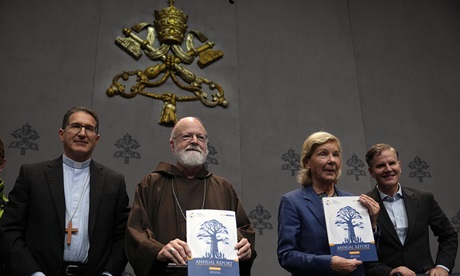The first-ever annual report of the Vatican Pontifical Commission for the Protection of Minors states that New Zealand, Australia, the South Pacific Islands, North America and Europe have all created adequate structures to address abuse.
The report notes that Africa, Asia and South America lag behind in creating these structures due to a lack of resources.
It stresses the urgent need for “increasing solidarity among episcopal conferences, to mobilise resources for a universal standard in safeguarding”.
The report
In 2022 Pope Francis asked the Commission to draft a report offering “a reliable account on what is presently being done and what needs to change, so that the competent authorities can act”.
The report would be a step toward “transparency and accountability” for lay people who are losing trust because of the clerical abuse crisis, Francis said.
The Commission then undertook the first global assessment of the Church’s efforts to address its sexual abuse crisis. After having a close look at a dozen countries, two religious orders and two Vatican offices, the Commission analysed its findings and recommendations.
Its subsequent annual report offers “mechanisms for change in the short-term” and guidelines for Church leaders at all levels for implementing safeguarding measures, says Maud de Boer-Buquicchio (pictured) who oversaw the report’s drafting.
While progress is being made in some respects, “regrettably much of the Church remains without robust data collection practices or capacities” she adds.
The Church must commit to investing in its data collection infrastructure and resources” she says.
Journey of change
It is ten years since Pope Francis set up the Commission.
The report’s analyses offer a “snapshot of the journey of conversion that we have been on” says the Commission president Cardinal Sean O’Malley of Boston (pictured second from left).
“It is a journey towards a transparent and accountable ministry of safeguarding, towards greater outreach, welcome and support for victims and survivors in their pursuit of justice and healing.”
Commission member and sex abuse survivor Juan Carlos Cruz says the report represents a significant step forward and gives him hope for further progress.
“We’re using words that we didn’t use before. Truth, justice, reparation and a guarantee of non-recurrence…’’ he says.
Improvement sought
The report made use of focus groups with clerical abuse survivors who pointed to the main ways the Church has mishandled abuse concerns.
Better access for victims to information about their individual cases is needed, the report says.
It was particularly concerning that victims are often not informed of the outcomes of canonical trials.
In its most critical note, the report called for greater transparency from the Vatican’s sex abuse office (the Dicastery for the Doctrine of the Faith) which oversees the Pontifical Commission for Minors.
The Dicastery’s “slow processing of cases and secrecy were re-traumatising to victims, and its refusal to publish statistics and its own jurisprudence continues to foment distrust among the faithful, especially the victim/survivor community” the report says.
Source
